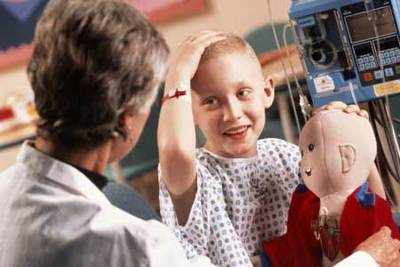- News
- lifestyle
- health-fitness
- health-news
- Cancer myths debunked
Trending
This story is from February 3, 2016
Cancer myths debunked
Cancer experts set the record straight on the most common cancer lores. Dr Boman Dhabar Medical Oncologist Wockhardt Hospitals, Mumbai Central

Cancer experts set the record straight on the most common cancer lores. Dr Boman Dhabar Medical Oncologist Wockhardt Hospitals, Mumbai Central
Myth 1: Stress can give you cancer
Blaming your cancer on your inability to cope well with stress is a highly detrimental guilt trip that will only make you feel worse psychologically. There’s no evidence to support that life stressors, such as caring for an ill relative, having an overbearing boss, an abusive relationship or financial difficulties, will cause you to develop cancer, or affect your survival or the recurrence of the disease.It is found that chronic daily stress may actually impair the synthesis of estrogen, mitigating the hormone’s effect in causing breast cancer and lowering the incidence of the disease in highly stressed women.
Myth 2: Boosting your immune system with supplements will decrease your risk of cancer recurrence
Don’t rely on supplements. Eating whole foods provides a broad range of nutrients and decreases the likelihood of consuming dangerously high levels of any nutrient.
Myth 3: There’s nothing I can do to prevent cancer
Wrong. The first step is to identify aspects of your lifestyle that increase your risk, like smoking, which is responsible for causing about a third of all cancer deaths. The other major risk factor for cancer is the combination of unhealthy diet, overweight and physical inactivity.
Most people know that being overweight or obese increases their risk of diabetes and heart disease, but very few are aware that it increases their risk of developing cancers. Evidence increasingly links obesity to cancer, including lymphoma, myeloma and tumours of the breast, colon, esophagus, gallbladder, kidney, liver, pancreas, and uterus. Excess weight increases levels of insulin, which may fuel colon, pancreatic and prostate cancer, and of estrogen linked to breast and endometrial cancer. And excess energy intake from food may fuel the growth of several cancers.
Lasting weight loss requires not only diet control but also increased physical activity – at least 30 minutes most days of the week. Exercise may help prevent cancer in other ways as well. For example, its ability to lower the insulin level and speed wastes through the gut may reduce colon-cancer risk. And by controlling hormone levels, it may protect against breast and prostate cancer.
Myth 4: Only the young benefit from cancer treatment
The reality is that age itself does not preclude good cancer treatment. Treatment decisions should be based on the number of factors, including the patient’s physical robustness, other illnesses, anticipated active life expectancy, the natural pattern of growth and inherent danger of the cancer, and the likely to impact of treatment. Patients in their 80s or older, who are in good physical shape and who have family histories of longevity, may well benefit from careful selection of surgery, radiotherapy, or chemotherapy for a malignancy that threatens to cut short their lives. The key is to receive multi-disciplinary care.
Myth 5: There’s no point to get the screening tests done because once you find cancer it is rarely cured
Several screening tests are life-saving. The Pap test has helped countless women survive cervical cancer. Mammography can prevent between one-fourth to one-third of deaths from breast cancer by finding tumours when they are smaller and less likely to have spread. Colon cancer screening could prevent more than half of all deaths from this disease because it finds cancers when they are still small and curable. If you have a strong family history of some cancers, such as breast, ovarian and colon, you may need special screening tests or procedures to decrease your risk. Many cancers are curable, particularly when diagnosed at an early stage.
Myth 1: Stress can give you cancer
Blaming your cancer on your inability to cope well with stress is a highly detrimental guilt trip that will only make you feel worse psychologically. There’s no evidence to support that life stressors, such as caring for an ill relative, having an overbearing boss, an abusive relationship or financial difficulties, will cause you to develop cancer, or affect your survival or the recurrence of the disease.It is found that chronic daily stress may actually impair the synthesis of estrogen, mitigating the hormone’s effect in causing breast cancer and lowering the incidence of the disease in highly stressed women.
Myth 2: Boosting your immune system with supplements will decrease your risk of cancer recurrence
Not so, there is no evidence of an increased incidence of the more common cancers like breast, lung, or colon cancer in transplant patients being treated with immune suppression drugs or patients with AIDS, whose immune systems are already depressed as a result of the disease. And while chemotherapy lowers the immune system, it actually cures many cancers.
Don’t rely on supplements. Eating whole foods provides a broad range of nutrients and decreases the likelihood of consuming dangerously high levels of any nutrient.
Myth 3: There’s nothing I can do to prevent cancer
Wrong. The first step is to identify aspects of your lifestyle that increase your risk, like smoking, which is responsible for causing about a third of all cancer deaths. The other major risk factor for cancer is the combination of unhealthy diet, overweight and physical inactivity.
Most people know that being overweight or obese increases their risk of diabetes and heart disease, but very few are aware that it increases their risk of developing cancers. Evidence increasingly links obesity to cancer, including lymphoma, myeloma and tumours of the breast, colon, esophagus, gallbladder, kidney, liver, pancreas, and uterus. Excess weight increases levels of insulin, which may fuel colon, pancreatic and prostate cancer, and of estrogen linked to breast and endometrial cancer. And excess energy intake from food may fuel the growth of several cancers.
Lasting weight loss requires not only diet control but also increased physical activity – at least 30 minutes most days of the week. Exercise may help prevent cancer in other ways as well. For example, its ability to lower the insulin level and speed wastes through the gut may reduce colon-cancer risk. And by controlling hormone levels, it may protect against breast and prostate cancer.
Myth 4: Only the young benefit from cancer treatment
The reality is that age itself does not preclude good cancer treatment. Treatment decisions should be based on the number of factors, including the patient’s physical robustness, other illnesses, anticipated active life expectancy, the natural pattern of growth and inherent danger of the cancer, and the likely to impact of treatment. Patients in their 80s or older, who are in good physical shape and who have family histories of longevity, may well benefit from careful selection of surgery, radiotherapy, or chemotherapy for a malignancy that threatens to cut short their lives. The key is to receive multi-disciplinary care.
Myth 5: There’s no point to get the screening tests done because once you find cancer it is rarely cured
Several screening tests are life-saving. The Pap test has helped countless women survive cervical cancer. Mammography can prevent between one-fourth to one-third of deaths from breast cancer by finding tumours when they are smaller and less likely to have spread. Colon cancer screening could prevent more than half of all deaths from this disease because it finds cancers when they are still small and curable. If you have a strong family history of some cancers, such as breast, ovarian and colon, you may need special screening tests or procedures to decrease your risk. Many cancers are curable, particularly when diagnosed at an early stage.
End of Article
FOLLOW US ON SOCIAL MEDIA









